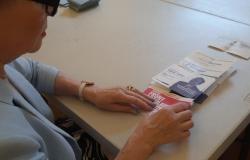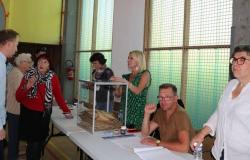Cut off in his momentum by the dissolution, the ambitious Gabriel Attal could leave Matignon without having had time to plant his tree or complete his files, but not without having sown seeds for the future.
Appointed on January 9th after a spectacular rise, the tenure of the youngest Prime Minister of the Fifth Republic risks ending on the evening of the second round, on July 7th, if the presidential camp only obtains third place as the polls predict.
That is two days before reaching the six months spent on rue Varenne, which allows one to be elevated to the dignity of Grand Cross of the National Order of Merit. And without having, as tradition dictates, planted a tree in the garden of Matignon.
With a more “political” and communicative profile than his predecessor Elisabeth Borne, Gabriel Attal imposed his mark from the moment he took office: travel often, communicate a lot. Too much according to some, attracting the wrath of the opposition who accuse him of monopolizing the media and “bullshit”.
Others denounce “contempt” for the French or criticize his young age, with Marine Le Pen mocking a Prime Minister whose “authority fits like an apron on a cow.”
Gabriel Attal assumes and continues to occupy the ground, failing to have an absolute majority in the National Assembly, where around twenty texts were adopted under his mandate.
A member of the government says he is “bluffed” by this Prime Minister who, at 35, “in the washing machine at Matignon, manages to both retain his ability to speak, to build a relationship with the French people, while taking charge of the files” and leading the new government “pack” in a “quite impressive” way.
Conversely, someone familiar with the workings of government points to a man who intends to “control everything in terms of communication”, rather than “conduct public policies in substance, in a solid manner”.
– “Thickness” –
A graduate of Sciences Po, four times minister (Youth, spokesperson, Budget and Education), the young head of government sometimes irritates with his image as “top of the class”.
Having moved from socialism to macronism, he now borrows Sarkozy codes: he defends the “middle classes” and “France which gets up early”, advocates “authority” at school, where he wants to put the uniform back on after having bans the abaya, wants tougher penalties for juvenile offenders.
“His challenge is to move from communication to concrete results”, estimated in March a majority executive who believes that he has since “gained depth” and has revealed himself “as a good campaign leader”.
Gabriel Attal, however, entered the European one reluctantly.
Presented in his camp as “the anti-Bardella weapon”, his remarkable televised performance against the president of the National Rally did not succeed in moving the polls, and the majority list ended up at 14.6%, at 16 points from that of the extreme right, a resounding failure.
“Brutal”, the dissolution which followed, on which Mr. Attal was not consulted, went badly. His silence for two days speaks volumes.
The Prime Minister then tried to turn the tide in his favour, while the image of the head of state was arousing growing rejection, and to appear as a recourse for his camp: he increased his media appearances and travels.
Presented by Emmanuel Macron as one of his potential heirs, he emancipates himself by calling on the French to “choose” him at Matignon and assures that there will be “a before and an after in the practice of power”.
This son of a film producer, who never made a secret of his homosexuality, attended the benches of the posh Alsatian School in Paris, returned to his constituency of Hauts-de-Seine, neighboring that of his former companion , outgoing Minister of Foreign Affairs, Stéphane Séjourné.
He simplifies his speech, calling for a vote for the “central bloc” against the “two extremes” which would send the country “into the wall”.
His interest? To try to “be absolutely irreproachable at the end” to acquire “respectability” in his camp and possibly take up the torch, suggests a Renaissance official.
Many in the majority see a future for him, in the party or in the group. “But if there are 100 deputies at the end (instead of 169) all that is literature,” warns an ally.





